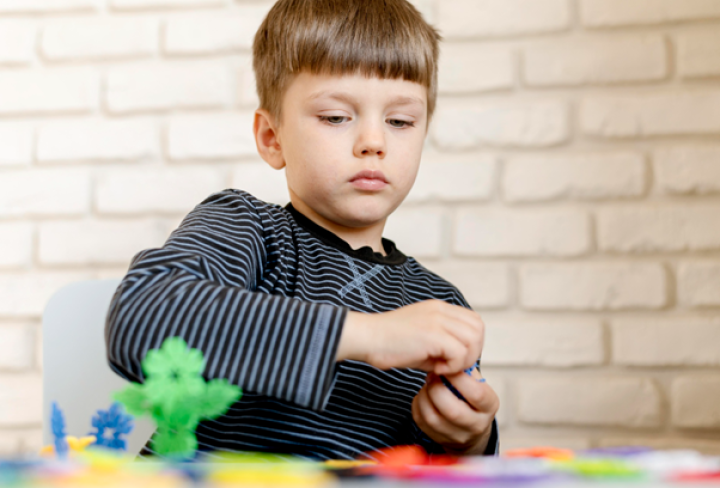Overview:
Welcome to our informative article on how to identify signs of developmental delay in children. We understand that discovering potential developmental delays in your child can be concerning. However, early identification and intervention can make a significant difference in their development. Recognizing the signs and taking appropriate actions can ensure your child receives the necessary support to overcome these challenges. Let’s explore the topic of developmental delays in children in-depth, empowering you with knowledge and understanding.
What is Developmental Delay?
Developmental delay is when a child lags behind their peers of the same age in achieving specific developmental milestones. While every child develops at their own pace, it’s important to consult your child’s pediatrician if you have concerns about potential delays. A medical professional can help determine if underlying medical causes contribute to late development.
Symptoms of Developmental Delay:
Ignoring the warning signs of delayed development in a child can hinder their ability to receive timely treatment and reach their full potential. Different types of developmental delays exhibit various signs and symptoms. Here are some common characteristics of developmental delays in children:
- Delays in gross motor skills such as rolling over, sitting up, crawling, and walking.
- Difficulties with fine motor skills that require precise control.
- Challenges in comprehending and understanding what others are saying.
- Difficulty in problem-solving and finding solutions.
- Social skill challenges, struggling to interact and engage with others.
- Delay or difficulty in speech and language development.
- Problems with memory recall and remembering past events.
- Inability to establish a connection between actions and their consequences.
If you observe significant lags in your child’s progress, seeking a proper developmental delay diagnosis from a medical professional is crucial for early detection and intervention.
Causes of Developmental Delay:
Understanding why your child may be experiencing developmental delays is a natural concern. While the precise cause of developmental delays may not always be apparent, several factors can contribute to them. These factors include:
A. Genetics: Some forms of delayed development are influenced by genetic factors inherited from one or both parents.
B. Environmental Causes: Developmental delays can result from parental health and behaviors during pregnancy, such as smoking, drinking, maternal infections, and exposure to environmental toxins like lead.
C. Premature Birth: Babies born before 37 weeks of gestation or with low birth weight have a higher likelihood of experiencing developmental delays.
D. Trauma or Injury: Head injuries, abuse, or accidents can impact a child’s growth and development.
Types of Developmental Delays in Children:
Developmental delays can manifest in various forms. Here are some types of developmental delays that children may experience:
- Slow language and speech development: Difficulty speaking, learning a language, pronouncing words, and using proper vocabulary, or grammar.
- Gross motor delay: Challenges with essential movements like sitting, crawling, walking, or running.
- Delays in fine motor skills: Difficulty with small movements required for tasks like writing, using utensils, buttoning clothes, or cutting with scissors.
- Social and emotional delay: Struggles in emotional regulation, establishing and maintaining social connections, and managing emotions.
- Cognitive delays: Impairment in intellectual functioning, leading to learning difficulties that often become apparent once a child begins schooling.
Developmental Delay Treatment:
Receiving the news of a child’s developmental delays can be overwhelming, but there is hope. Through proper management and support, children with developmental delays can still thrive. Here are some strategies to help children with developmental delays:
- Early Intervention: Early intervention significantly increases the likelihood of a child reaching their full potential, functioning well, and enjoying a better quality of life. Seek a wide range of services to assist children with developmental challenges as early as possible.
- Implement a Structured Routine: Establishing a structured routine can provide a stable, familiar, predictable, and nurturing environment for children with developmental delays. Regular eating, playing, and sleeping times can contribute to their growth and development.
- Engage in Home Activities: Promote skill development through engaging activities at home. Playing with play-dough, slime, or putty can enhance fine motor abilities, while activities like playing in the mud or dancing can support gross motor skills.
- Medication: In some cases, medication can be used to manage symptoms associated with developmental delays, such as attention deficit hyperactivity disorder (ADHD) or autism spectrum disorder (ASD). Consult your child’s pediatrician or specialist to determine the most appropriate medication treatment, if needed.
Conclusion:
By being aware of the signs of developmental delay in children, you can take proactive steps to ensure early identification and intervention. Remember, timely support and proper management significantly contribute to a child’s development and overall well-being. If you have concerns about your child’s developmental milestones, consult with a medical professional for a comprehensive evaluation and guidance. Together, let’s empower our children to overcome developmental challenges and reach their full potential.

